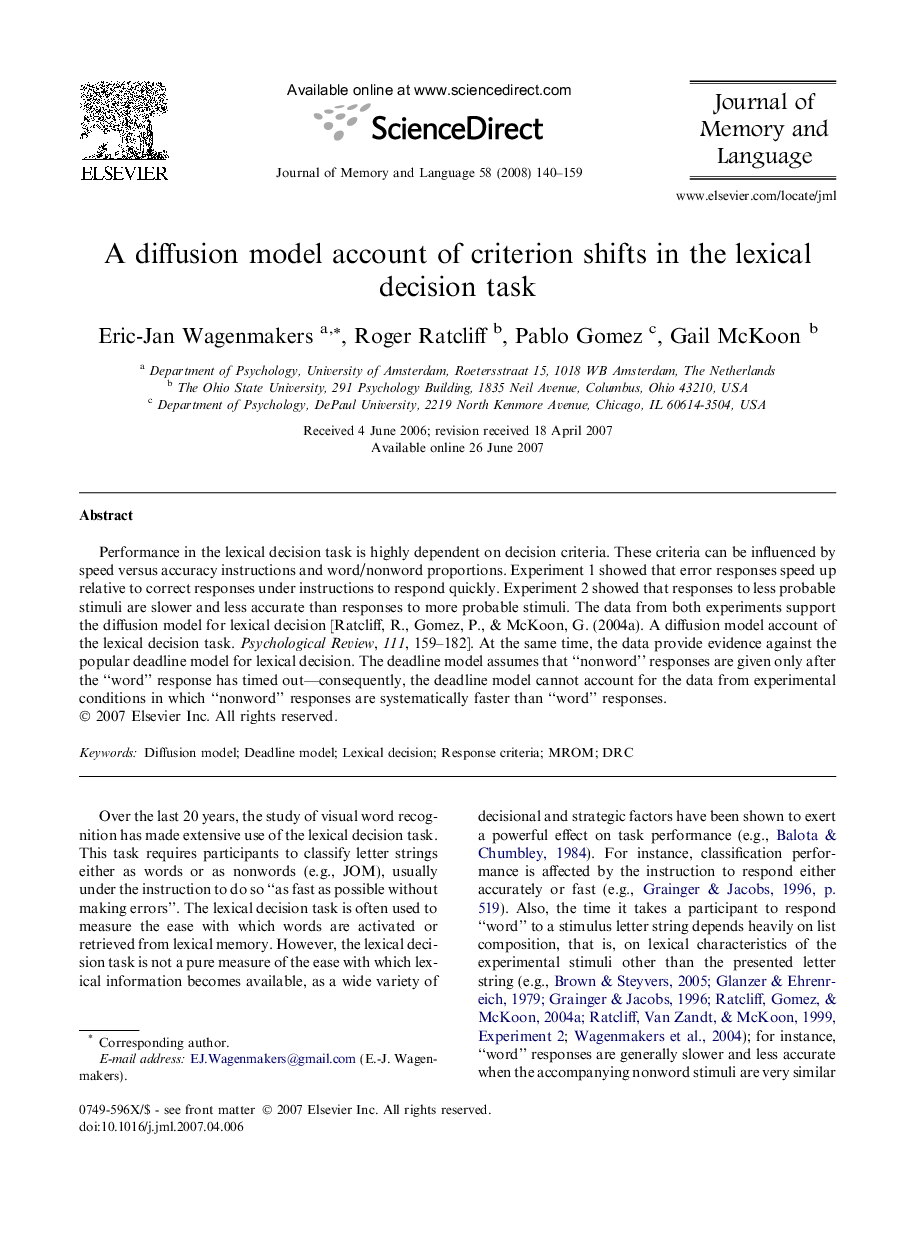| Article ID | Journal | Published Year | Pages | File Type |
|---|---|---|---|---|
| 932163 | Journal of Memory and Language | 2008 | 20 Pages |
Abstract
Performance in the lexical decision task is highly dependent on decision criteria. These criteria can be influenced by speed versus accuracy instructions and word/nonword proportions. Experiment 1 showed that error responses speed up relative to correct responses under instructions to respond quickly. Experiment 2 showed that responses to less probable stimuli are slower and less accurate than responses to more probable stimuli. The data from both experiments support the diffusion model for lexical decision [Ratcliff, R., Gomez, P., & McKoon, G. (2004a). A diffusion model account of the lexical decision task. Psychological Review, 111, 159-182]. At the same time, the data provide evidence against the popular deadline model for lexical decision. The deadline model assumes that “nonword” responses are given only after the “word” response has timed out-consequently, the deadline model cannot account for the data from experimental conditions in which “nonword” responses are systematically faster than “word” responses.
Related Topics
Life Sciences
Neuroscience
Cognitive Neuroscience
Authors
Eric-Jan Wagenmakers, Roger Ratcliff, Pablo Gomez, Gail McKoon,
